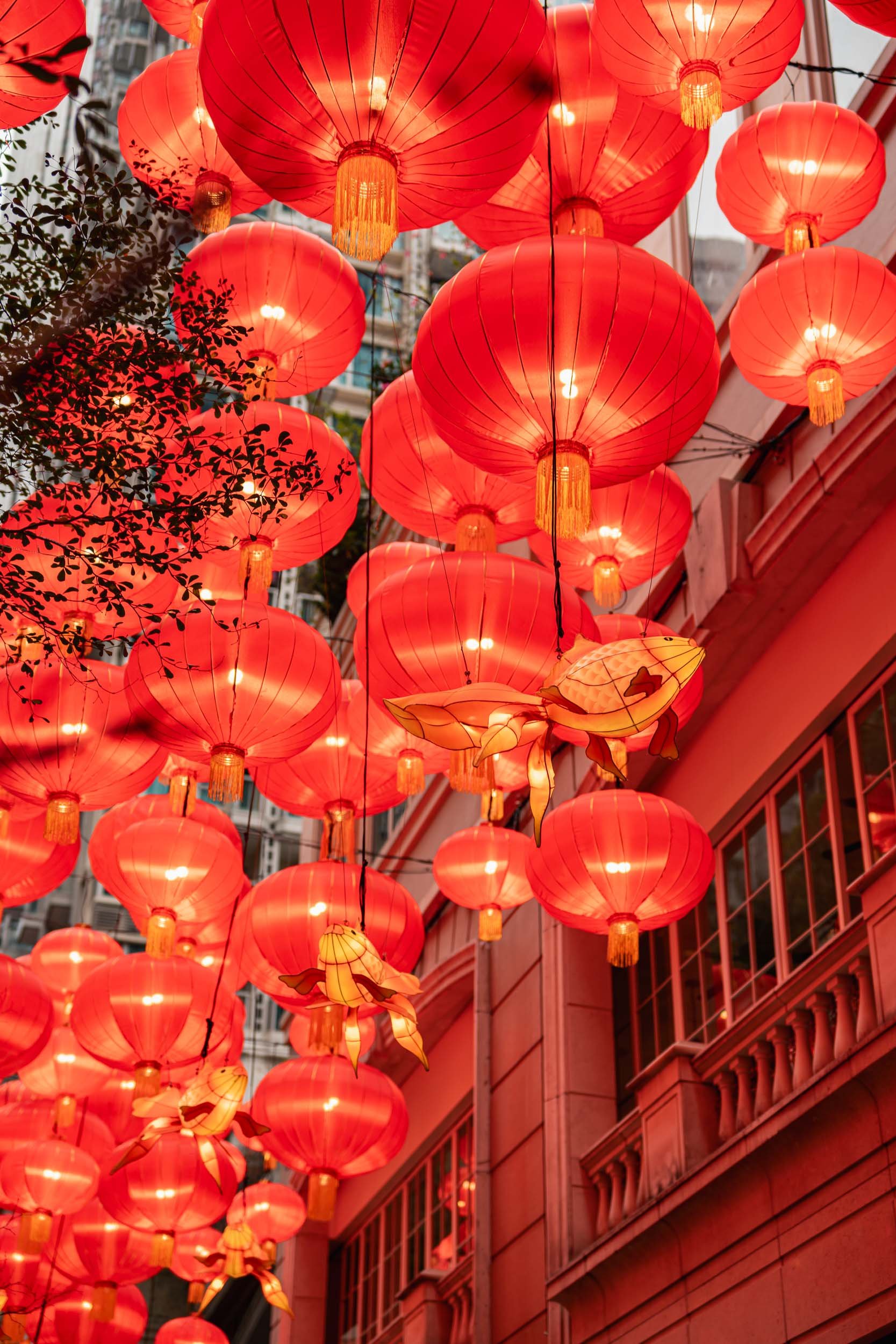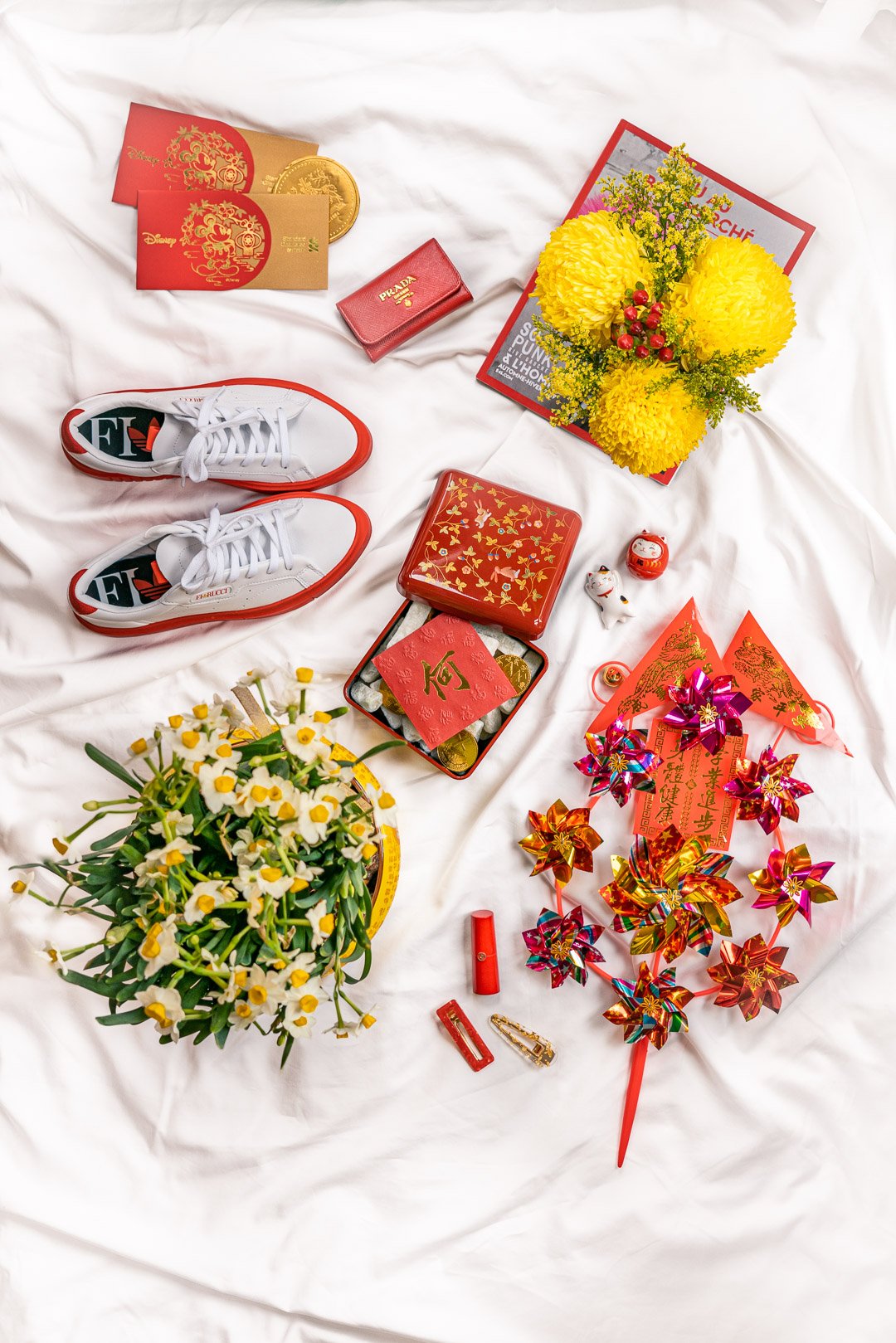15 Auspicious Plants to Decorate Your Home with this Chinese New Year
Of all the Chinese New Year festivities in Hong Kong, I delight the most in visiting flower markets.
Chinese culture has traditionally assigned symbolic meanings to different plants. Although these are no longer conventions that modern society lives by, it never hurts to cash in an extra dose of luck for the coming year. After all, if everyone else is doing it and you’re not, you’re probably missing out on some fun, so it’s time to herald in a prosperous new season with the most auspicious flowers!
It’s the busiest time of the year for florists, with orders and shoppers flooding in from every direction. Local fairs have also returned with a renewed buzz, filled with vibrant shades of red, vermillion, and gold abounds in symbolism for prosperity, love and good fortune.
If you wanted to pick out your harbinger of luck first-hand, you would have to brave the crowds at the Flower Market in Prince Edward or travel to flower farms in the New Territories. There are noticeably more shoppers than usual, and I recommend leaving the market before 11 AM if you don’t want to be stuck in an endless stream of traffic.
Not a fan of flower shopping but still want to find out what the annual fuss is all about? I’ve rounded up some of the most popular auspicious plants for the Chinese New Year. Whatever you’re looking for, there’s bound to be something that fits the bill.
Flowers
1. Narcissus (水仙花)
Meaning: good fortune, prosperity
With fresh and powdery notes, narcissi smell like an absolute dream and are my favourite of all the Chinese New Year plants. Translating to “water fairy flowers” in Chinese, its dainty yellow and white flowers symbolise gold and silver, with rarer plants sporting double trumpets or even pale yellow petals.
Add to that their affordability (cheap small bulbs come under HK$100) and low maintenance required; narcissi are the most common household flower during Chinese New Year. However, their shoots grow rapidly in warmer temperatures before flowering, so many use chemicals to curb their growth.
These would be in the house all year round if I had my way!
2. Orchids (蘭花)
Meaning: fertility, abundance and purity
The crowning jewel of Chinese New Year flowers, orchids are so popular and flower stalls receive so many orders ahead of time that entire parts of stalls would be fenced off to avoid damage to plants awaiting pick-up.
The most common orchid sold in Hong Kong is the moth orchid, which when in full bloom displays elegant, arching sprays of vivid colours that lasts for months on end. They make for an opulent display at home and in the office, especially if you have guests coming over. If you have green fingers (and patience), you could even re-pot them afterwards. With good care, they will bloom again every year.
While orchids come in all shapes and sizes, for what they’re worth, they do tend to be at the higher end of the price scale. Large, decorative pots are typically priced upwards of HK$888.
A slightly less conventional but equally showy choice would be the boat orchid, named for its bottom petal that curls upwards and resembles a boat’s hull. They come in softer shades of pink and yellows, with a gentle drape and reservedness before the flowers bloom.
If an orchid pot is too overwhelming and you prefer stalks that sit neatly in a vase, the dancing lady orchid is a cheerful candidate that is easier to care for than most orchids. Its fluttering yellow blooms resemble a ballroom dancer’s dress and brighten the room with an intricate splash of colour.
3. Chrysanthemums (菊花)
Meaning: wealth, prosperity and longevity
Mums are more of an old-fashioned flower romanticised by scholars and poets.
Traditionally blooming in late fall, they thrive in the cold when other flowers wither and have long been connotated with noble sentiments. Because of its use in herbal remedies (I love chrysanthemum teas!), they’re also associated with longevity.
Potted plants of golden yellow and red are apparent choices for corporate offices. However, you won’t find white chrysanthemums on sale due to their association with funerals and condolences. Instead, they come dyed in all colours of the rainbow. Delightful options include massive flowers as large as your fist and smaller variations perfectly shaped like a ping-pong ball.
4. Peach Blossoms (桃花)
Meaning: romance, prosperity and growth
Peach blossoms come hand in hand with expensive porcelain vases and red packets galore to signify their lofty status – most shopping malls and commercial buildings have at least one epic tree in their foyer.
In traditional Chinese New Year markets, florists would stock several stalls’ worth of peach blossoms, all bundled up with red plastic strings. It’s pretty much the Chinese New Year version of Christmas tree shopping. Of course, with Hong Kong being Hong Kong, very few households can afford the space to put up a full tree. Florists in recent years have instead taken to selling dwarf branches and minuscule pots in an attempt to democratise the market and garner sales.
Traditions dictate that those looking for a dose of romance and good fortune should circle a peach blossom clockwise 3 times. Be warned though, walking anticlockwise would have reverse effects. And you’re possibly screwed if you go about it more than 3 times which is said to cause unwanted encounters.
5. Gladiolus (劍蘭)
Meaning: career growth and self-development
You’ll encounter plenty of fellow shoppers balancing these flowers that resemble massive asparagus stalks against their shoulders when walking through the flower markets.
More commonly known as sword lilies, a single branch stands defiantly tall and carries abundant blossoms. The flower symbolises the Chinese phrase “步步高陞” as it blooms steadily from the base to the tip. Although gladioli come in a vibrant range of hues, the most popular option is to go for sprays of reds to capture the festive spirit.
6. Pussy Willows / Catkins (銀柳)
Meaning: prosperity and growth
Pussy willows derive their name from the silvery tufts that resemble tiny cat paws, with their Chinese name homophonic for “有銀有樓”, meaning having money and a house. They’re among the first willows to bloom and indicate the brink of spring.
Typically sold in bundles, pussy willows can be as tall as a person and come dyed in a myriad of striking colours. Growing up, one of my favourite things to do when doing the rounds at my relatives’ was to pop off the protective black shells. But I’m absolutely terrified of pussy willow flowers. So when those fuzzy yellow buds start appearing, I know it’s time to bid them goodbye for the year.
7. Plum Blossoms (梅花)
Meaning: resilience and perseverance
Plum blossoms are known to bloom vibrantly amidst harsh winter snow. It’s the National flower of Taiwan, with its three stamens representing Dr Sun Yat-sen’s Three Principles of the People.
Often overshadowed by the more popular peach blossom in Hong Kong, plum blossoms are a rare find in flower markets and mostly come in small decorative pots.
8. Peonies (牡丹)
Meaning: wealth, prosperity and peace
Peonies are heralded as the King of Flowers (花中之王) for their full-bodied, lush blossoms in vibrant hues that bring a sense of opulence. They are particularly auspicious in Chinese mythology as they grow in clusters, making for a popular motif in traditional patterns and art.
While less commonly found in flower markets, their enchanting blooms and rich fragrance often draw a crowd.
9. Lillies (百合)
Meaning: purity and passionate love
A true trooper, lilies are impossible to ignore with their towering stems and large, trumpet-shaped blooms that announce the onset of celebrations. Their Chinese name means “hundred years of good union” (百年好合), giving them a second layer of meaning of enduring love and joy. Again, vibrant hues take centre stage, with white varieties not found during Chinese New Year.
Always remember to remove the stamens once the flowers bloom, as lily pollen will stain fabrics orange and yellow and are notoriously hard to remove.
10. Forsythia (寸寸金)
Meaning: prosperity
Not to be confused with dancing lady orchids, forsythia grows on hardier branches that burst into a glorious golden colour with a flowering period of up to 3 months. The graceful star-shaped flowers bloom one by one at the end of the year, alluding to the wealth and money that will be attracted in the coming year – the Chinese nickname literally means “gold every step of the way”.
11. Anthurium (紅掌)
Meaning: ambition, passion and abundance
With glossy, heart-shaped spathes impossible to miss, anthuriums make for stunning house gifts. Being homophonic with “bear’s paw” (熊掌) also gives it a regal, noble quality much sought after. Unsurprisingly, scarlet red anthuriums are most popular during the Chinese New Year festivities, while other pink and white varieties can be found throughout the year.
Due to their unique shape, anthurium stems are fragile and typically wrapped individually for sale.
Greens and Other Plants
12. Lucky Bamboo / Dragon Trees / Dracaena (富貴竹)
Meaning: good fortune and prosperity
Despite its name and looks, the lucky bamboo isn’t actually from the bamboo family.
These green stalks are relatively cheap and come in striking forms. Some are trained to twirl and grow like loopy straws (轉運竹), some braided into sculptural arrangements. Different numbers of stalks also denote different meanings, just stay away from “four” as it’s considered an unlucky number in Chinese culture.
The more elaborate arrangement is to bundle stalks into a bamboo tower. In true Chinese New Year fashion where nothing can be considered OTT, vendors often incorporate the five elements to make the lucky bamboo even luckier:
Earth – pebbles surrounding the stalks
Metal – coins and gold accents
Water – what the plant grows in
Fire – red ribbons and other accents
Wood – the bamboo plant itself
13. Kumquats / Calamondin Trees (金橘)
Meaning: prosperity and good luck
Calamondins are a perennial favourite during Chinese New Year as their Chinese name (金橘) is a pun on luck and fortune (吉).
Commonly placed around doorways, these potted shrubs can be grown indoors and ensure you bring in good fortune when entering your home or workplace.
The bright orange is certainly a great way to perk up any space, not to mention that the kumquats can be preserved in salt afterwards which make a great cure for curing sore throats.
14. Cow’s Udder / Nipple Fruit (五代同堂)
Meaning: happiness and longevity
This is probably one of the weirdest fruits out there and I can’t decide what’s more hilarious – the shape of the fruit or its various names. Nonetheless, it’s a unique plant for Chinese New Year as each fruit bears five protrusions, representing five generations living under the same roof (五代同堂).
Usually sold in the shape of a tree, you can also find these unripe fruits hanging by the branch in colourful gradients from green to orange.
15. Australian Holly (富貴子)
Meaning: wealth and bountiful descendants
Decked out in a festive shade of bright red, the heavy fruit clusters give a feeling of fruitfulness and prosperity. And yes, it’s the one and the same as the winterberry or holly we’re accustomed to seeing at Christmas.
And that’s a wrap! There are so many lucky plants for the Chinese New Year, we’ll likely fill the house with at least a few and make some friends happy (and lucky) with celebratory gifts. So have a wonderful time celebrating the Chinese New Year – gong hei fat choy to you all!
Related Posts






















































